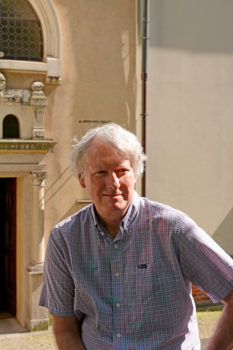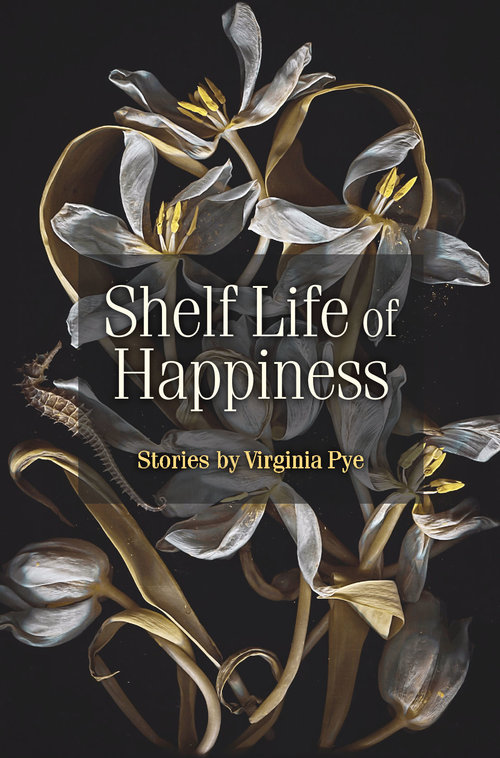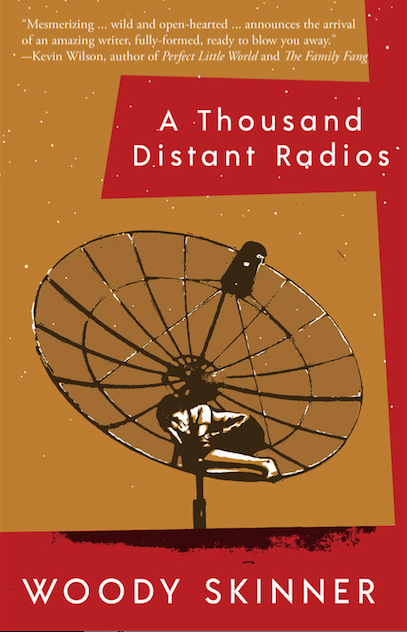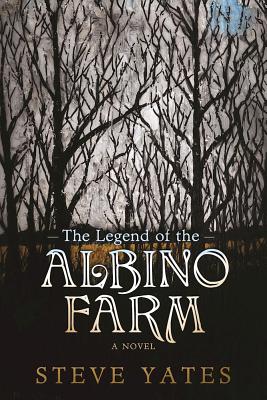When two story lines cross over one another in Steve Yarbrough’s The Unmade World (Unbridled Books), the worlds of all involved unmake themselves. The stage is set for disaster with an idyllic opening scene: American journalist Richard Brennan and his daughter decorate their family Christmas tree in his wife’s hometown of Krakow, Poland. Jump to a simultaneous event in another part of the city—Bogdan and Marek, failing businessmen, try their hand at burglary, breaking into the front gate of a newly rich pool salesman’s house. These narratives collide in a car accident near the beginning of the novel, leaving the rest of the book not the denouement of an early climax but a slow rebuilding of wrecked lives.
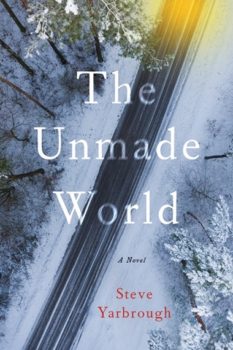 The 2006 catastrophe leaves both Richard and Bogdan deeply scarred. Richard, back in the States after his unfortunate Christmas in Poland, keeps writing for a southern California newspaper, but his heart isn’t in it. He works on a big scandal story but gives the job of writing it to a new journalist—and friend—in town, Maria. Meanwhile in Krakow, Bogdan’s wife leaves him. He keeps working with Marek until a job pushing older residents out of the apartment buildings they upgrade lands Bogdan in trouble with the law. Poland and the US are both in shambles politically. These men only encounter each other briefly at the site of the accident, yet they are bound by it and the tumultuous times in which they live. Yarbrough asks, alternating between Richard’s and Bogdan’s perspectives, what does it take to care again? At rock bottom, what makes a person look forward and up?
The 2006 catastrophe leaves both Richard and Bogdan deeply scarred. Richard, back in the States after his unfortunate Christmas in Poland, keeps writing for a southern California newspaper, but his heart isn’t in it. He works on a big scandal story but gives the job of writing it to a new journalist—and friend—in town, Maria. Meanwhile in Krakow, Bogdan’s wife leaves him. He keeps working with Marek until a job pushing older residents out of the apartment buildings they upgrade lands Bogdan in trouble with the law. Poland and the US are both in shambles politically. These men only encounter each other briefly at the site of the accident, yet they are bound by it and the tumultuous times in which they live. Yarbrough asks, alternating between Richard’s and Bogdan’s perspectives, what does it take to care again? At rock bottom, what makes a person look forward and up?
In 2016, escaping hurtful memories, Richard moves from his family home in California to teach writing at a small college outside Boston. He tells his students to record details throughout their daily lives. These could capture the perfect ending or become the first line of a piece. Yarbrough himself follows this advice. From the first sentences, Yarbrough builds his narrative up with details:
“‘You’re lucky I love Ella Fitzgerald,’” his daughter says. She’s standing on the chair he brought in from the kitchen, and she’s just positioned the angel atop the tree. They bought that ornament this morning at a stall in the enormous Cloth Hall, which dominates the market square, and they bought the tree yesterday outside Galeria Krakowska, and then he dragged it ten blocks through the snow and up five flights of stairs.
Like Richard’s Polish brother-in-law, a famous crime fiction writer, Richard makes up stories about everyone he meets, sleuths for details that unlock people’s motives and character. It’s when he stops being so curious that he realizes he’s lost his hold on life. His friend Maria “possesses an attribute he’s lost . . . ‘relentlessness’ comes closest . . . ‘Doggedness’ could work.” Richard’s descent into unproductivity doesn’t make Yarbrough any less interested, however; he takes time to transcribe Richard’s “slogging from one day to the next” with as much care as he describes his successful professional pursuits.
Bogdan’s life is not as affluent as Richard’s, but rich in Yarbrough’s description of it. Bogdan loves animals, dogs especially. After a prison sentence following his run-in with the law, he regularly visits an animal shelter. Although he says little, his affections run deep. He prefers to take the fall for the crime than rat out his best friend and work partner, Marek. At his trial, Bogdan’s attorney describes him as a “shell of a person,” but in Yarbrough’s hands, this shell is anything but empty; the emptiness has a shape, a feel, a place in time and space. The shells of these characters, through all of Yarbrough’s details, add up to flush portraits of men touched by tragedy.
Elena, the girlfriend Bogdan meets at the hotel where he finally finds work, says, “I never knew a story could kill nobody, but sometimes it seems like mine would kill me.” Stories can unmake worlds as well as make them. The very incident that unmakes these men is a chance to build them back up. Maria is an opportunity for Richard to “wake up.” At a football game he attends with her and his nephew visiting from Poland, he says, “Today marked the start of reengagement.” Elena awakens Bogdan to love with her steady companionship. Yarbrough’s relentless and intricate account of his characters’ lives speaks for itself; beauty and care entice them to face their worlds again with hope.


